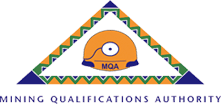Free Training & Career Tips... Subscribe to Get Weekly Career Tips

By Subscribing You are Agreeing to Terms and Conditions
The MQA (Mining Qualifications Authority) is a SETA (Sector Education and Training Authority) who looks after the skills development and training programs for the mining and minerals industry in South Africa.
The focus of the MQA is to ensure that individuals and companies in the mining and minerals industry have sufficient skills to support employment equity, health and safety, and productivity standards.
The MQA operates as a legal entity which was established as per the Mine Health and Safety Act No 29 of 1996. It is also a registered Sector Education and Training Authority for the mining and minerals industry as per the Skills Development Act.
Since mining is classified as a critical industry within South Africa, the MQA supports the objectives of the Mining Charter in terms of the Minerals and Petroleum Development Act.
The MQA strives to:

The MQA is responsible for supporting transformation in the Mining and Minerals industry through the implementation of skills development as outlined by the Skills Development Act. The MQA also supports the broad based-social economic empowerment charter (Mining Charter).
The functions as per the mining charter include:
As per SAQA, the function of the MQA is to develop unit standards and qualifications for the mining industry. MQA is therefore approved as an ETQA (Education and Training Quality Assurance) body for the industry.
MQA’s core functions include:
The MQA also functions as a quality assurance function supported by the QCTO (Quality Council for Trade and Occupations). They therefore have a responsibility to maintain the quality of all training assessments throughout the industry.
In order to meet the quality standards, criteria are set out for the accreditation of training providers. It also includes the registration of assessors and moderators at MQA.
Training providers can be divided into two categories:
Requirements for training providers to be accredited include:
For the accreditation approval process, all supporting documentation must be submitted by the Training Provider who is applying to be MQA accredited. A provisional accreditation status is granted to new training providers if corrective action should be taken after an audit showed some compliance to the set criteria. Full accreditation is granted once the training provider has met all requirements for full accreditation within 1 year.
Accreditation is only provided if the MQA has confirmed that all accreditation criteria have been met.
Upon successful accreditation, the service provider will receive a certificate from the MQA. The certificate should be clearly displayed on the provider’s premises.
The Skills Development Act and the (SDL) Skills Development Levies Act directs the process for the collection of levies from employers. The overall objective of the Skills Development Act is to provide initiatives to make training more affordable to individuals.
SDL must be paid by employers who have been registered. An employer who has a salary bill of more than R500 000 is liable to pay SDL.
1% Of the total amount that is paid in salaries should be paid and the money is collected by SARS.
Once paid, levies are then distributed via MQA. The Skills Development Act also provides the directive on how the funds allocated to each SETA should be spent.
In 2012, the revised Grant Regulations were released in order to regulate the percentages of the funds available for administration costs, regulate the portion of funds available for skills development as well as to improve the information that is received from the workforce through the WSP (Workplace Skills Plan), ATR (Annual Training Report) and PIVOTAL Training Reports. These reports provide important feedback on the skills needs and planning to meet these needs.
The MQA Funding Policy has been compiled in alignment with the Grant Regulations that were published under the Skills Development Act. The purpose of the policy is to provide a framework that can be applied to all MQA funding processes. It will also enable the allocation and distribution of funds based on the skills needs in the industry.
The funding policy support MQA programs which include:
Employers that are compliant with the Levies Act may claim mandatory grants from MQA granted they have submitted a WSP (Workplace Skills Plan), an ATR (Annual Training Report) and PIVOTAL Training Plan.
Discretionary grants are additional funding that companies can apply for in addition to their mandatory grants. The aim of discretionary grants is to support employed and unemployed learners who enter and complete learning programs.
80% of the Discretionary funds will be utilized for PIVOTAL programs. PIVOTAL programs are learning programs that support an occupational qualification or part qualification on the NQF. Per the MQA funding policy, the funding can be applied for:
A maximum of 20% of the available discretionary funds will be utilised for programs that are considered non-pivotal, as listed in the MQA Funding Policy.
The Skills Development Act of 1998 requires the MQA to establish, register, promote and execute learnerships in the mining and minerals sector. A learnership is a structured vocational, education and training program which offers a combination of theory and practical experience in the workplace that leads to an NQF-registered qualification.
The learnership program must:
A learnership is a great opportunity for matriculants to gain hands-on experience in the industry under the guidance of a mentor. All theory is taught in a classroom setting and tuition costs are covered as part of the learnership programme. A monthly allowance or stipend is also payable to help with some of the student’s expenses.
The learners can gain hands-on experience, workplace experience and skills training within the industry through a fixed-term contract between the learner, the employer, and the training provider. A learnership does not guarantee permanent employment but provides significant and useful experience to the learner.
Funding for learnerships is subject to compliance with the MQA’s criteria for Discretionary Grants funding. The MQA is funded from the 20% Discretionary grants fund.
Before a learnership can be registered, there must be an indication that there is a need in the sector. The criteria might include:
Since the MQA is delegated by the QCTO (Quality Council for Trades and Occupation, they are required to maintain the quality of assessments. One of the key objectives is to determine the criteria for the certification of learners and accredited training providers.
Certificates are only provided to learners who have been shown to be competent against a specific qualification or a skills program. A certificate of accreditation is also provided to the training provider that must be visibly displayed on their premises.
As soon as all the criteria have been met, the MQA management system will alert that a certificate needs to be issued for a specific student. All certificates are generated electronically. The training provider must ensure that the learner’s correct details and correct credits that were obtained are captured in the system.
The maximum turnaround time for certificates/statements of attainments to be ready from the date of approval is 90 working days.
Find a list of accredited providers including a list of qualifications they provide.
On 3 December 2012, the revised Grant Regulations were released, which impacted the allocation of SETA funding.
The MQA bursary scheme’s objective is to increase the number of learners and students who are taking up careers in the mining and minerals sector. The bursary scheme provides an opportunity for learners to study at Higher Education and Training Institutes.
The MQA bursaries support students that have registered and enrolled with universities, TVET colleges, and universities of technology. The bursary covers tuition and registration, accommodation fees, books and stationery, and a toolkit allowance.
Learners who show a strong academic record and a need for financial assistance are legible for funding.
The bursary will continue for every year, subject to a re-assessment by the MQA bursary committee on an annual basis.
Female applicants and applicants with disabilities are given special considerations.
The MQA holds a service obligation agreement. This means that successful candidates must secure employment within the mining and minerals industry for the same amount of years they were supported by a bursary.
Copyright text 2024 by Business Optimization Training Institute.